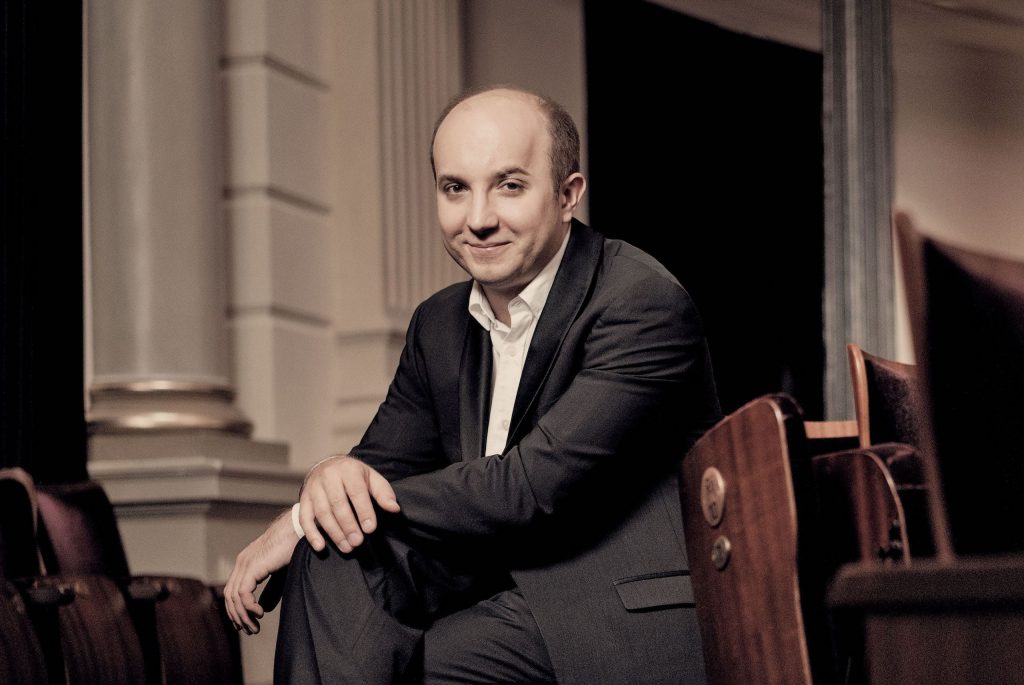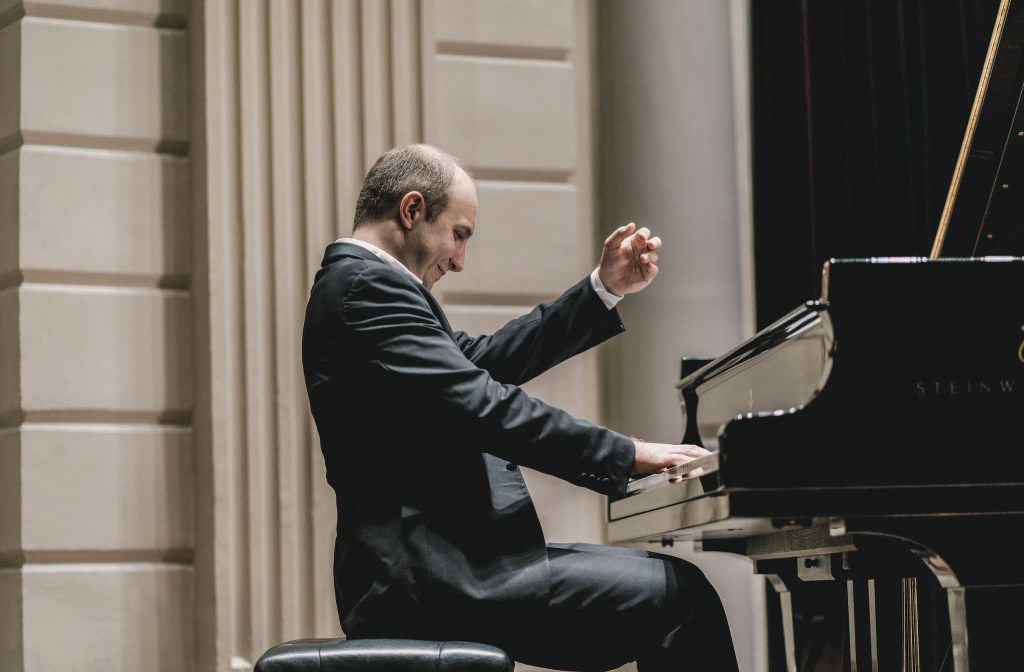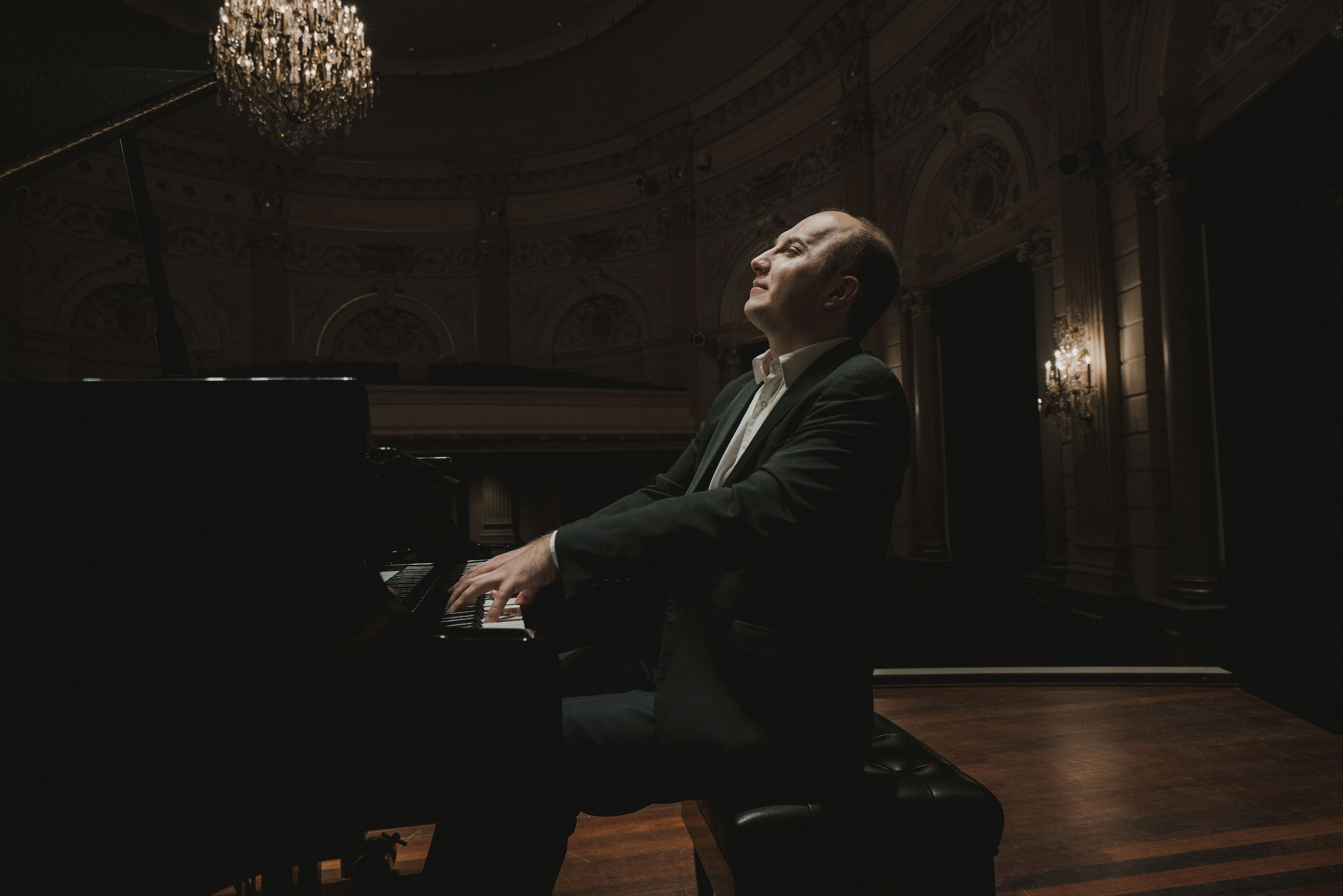Alexander Gavrylyuk will headline the Canberra International Music Festival in May. Photo: Marco Borggreve.
In 2004 a car carrying 20-year-old Alexander Gavrylyuk, a sought-after and talented concert pianist, was hit by another vehicle and ploughed into a power pole on Grand Parade in the coastal Sydney suburb of Brighton-Le-Sands.
The last thing he remembered was dazedly searching for a piece of cloth to staunch the bleeding from his broken skull before everything went black.
When he came to, connected to tubes and pipes and unable to speak, he scratched out a message he thought might alleviate the strain on the concerned faces of the loved ones surrounding him: “Please put beer into one of the tubes.”
Having comforted his loved ones with this show of humour, his attention turned immediately to his hands, which he was relieved to find were unharmed.
He had undergone several risky operations, however. Two surgeons had spent four hours repairing the skull above his left eye, and bone holders had been used to push the roof of his eye back into place.
He had spent a day in a coma and had been warned he might never speak or play the piano again.
“When I finally got home, the first thing I did was try to memorise Chopin’s Mazurkas as quickly as I could,” he said.
“I absorbed it quite fast and it was proof that everything was going to be OK because I could still play.”
Miraculously, the only lasting physical impact is a scar on his forehead. Within a month, he was back playing demanding Rachmaninoff pieces as technically well as ever.

Alexander’s career began in his native Ukraine at age seven, though arguably, his passion for playing came later.
“I was put into this old Soviet machine that produced pianists. It required hours and hours of practising in a harsh and strict environment which, to be honest, was not conducive to fostering a love of the art,” he said.
“But I have many positive memories there and certain cultural elements that helped create a foundation for my vision of music and art.
“My childhood experiences in nature and concert halls created a special relationship with that part of the world, as did my family.
“All that has changed now, of course. So, as you can imagine, this is a bittersweet subject.”
At age 13, Alexander moved to Australia and eventually became a citizen.
While living here, he won the first prize and gold medal at the Horowitz International Piano Competition (1999), first prize at the Hamamatsu International Piano Competition (2000), and the gold medal at the Arthur Rubinstein International Piano Masters Competition (2005).

He attributed his virtuosity to a constant quest to “get closer to the artistic truth of every composer”.
“Trying to be as pure and selfless as one can be to allow the natural message of each piece of music to come through, that’s what drives me,” he said.
“And to communicate to each member of the audience and myself, too, in the process.”
This will come to light when he headlines the Canberra International Music Festival in May.
In one performance, he will cover a great range of composers from Beethoven to Schumann, Liszt to Chopin and Brahms to Saint-Saëns.
“Each piece has some personal meaning to me,” he said.
“Schumann’s Kinderszenen I learned when the first of my two daughters was born.
“Kinderszenen means ‘child scenes’ in German. It’s about childhood joy, purity, innocence and the bright colours that come with that fairytale-like world.
“For me, it was very special because my daughter was born and I could make this direct connection with her.
“Then there’s Beethoven’s Moonlight Sonata, a very tragic piece that I connect to the tragedy in Ukraine and the strength of its people. The stoic resilience you hear in this music for me is a direct reflection of current events in Ukraine.
“I am so excited and grateful to be sharing these moments with the people of Canberra.”
Having been proclaimed as “easily the most compelling pianist of his generation”, audiences have been told to expect a night of “electrifying virtuosity” at the Gavrylyuk Recital.
Gavrylyuk Recital will be performed at the Canberra International Music Festival on 3 May.
This article was originally written and published by Dione David from Riotact on 17 February 2023.
